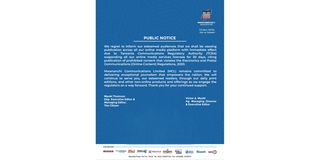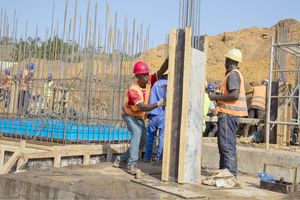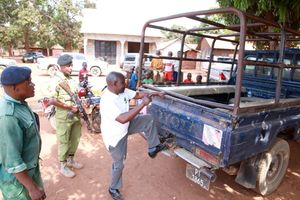EU $8.8m bid to turn the tide for Burundi refugees in Tanzania

The Nyarugusu camp hosting Burundian refugees in Tanzania. FILE PHOTO | NMG
What you need to know:
- The project, which is fully funded by the EU, was launched at the Nyarugusu refugee camp in Tanzania's western Kigoma region on October 1 and will run until September 2027
Tanzania and Burundi have joined forces with the European Union, the United Nations refugee agency (UNHCR) and other partners under a new €8 million ($8.8 million) initiative to resolve the refugee crisis afflicting both countries.
The project, which is fully funded by the EU, was launched at the Nyarugusu refugee camp in Tanzania's western Kigoma region on October 1 and will run until September 2027, aiming to improve the conditions for refugees, asylum seekers and those returning voluntarily to Burundi.
The UNHCR says it is keen to find durable solutions for Burundian refugees spread across the Great Lakes region by providing them with stronger resilience tools.
Tanzania, in collaboration with UNHCR, has been conducting a voluntary repatriation of Burundians since 2017, with official figures last updated in August this year showing that more than 177,000 have returned home.
But, the number of Burundian refugees in Tanzanian camps remains the highest for in the region, estimated at between 100,000 and 150,000.
The Democratic Republic of the Congo follows with just over 50,000, Rwanda and Uganda host 49,264 and 41,198 respectively. Kenya has just under 10,000.
About 37,500 Burundian refugees and asylum seekers are in Mozambique, Malawi, Zambia and South Africa under respective country-level programmes, UNHCR says.
Speaking at Tuesday's launch of the new EU-sponsored programme, Kigoma Regional Commissioner Thobias Andengenye described the Burundian refugee situation in Tanzania as "unique, necessitating a unique approach to dealing with it."
"There is no doubt that the current environment in Burundi is conducive enough to allow all refugees to go home, but we have observed that many are still very hesitant," Mr Andengenye said.
According to UNHCR, the programme will focus on refugees in the Nyarugusu and Nduta camps in Kigoma region and returnees to Burundi alike.
It involves improving their access to essential civil documentation, helping returnees reintegrate into the local education system, enhancing vocational skills and ensuring that certificates obtained in Tanzania are recognised in their country of origin, and helping to overcome other critical barriers to rebuilding their lives back home.
It will also look to build the capacities of legal protection services in Burundi so that returning refugees can also benefit fully from these services.
But, according to UNHCR's Burundi representative Brigitte Mukanga-Eno, while the EU cross-border project was a "timely and significant contribution," the costs of covering all refugee reintegration needs remains "huge."
"We will still need more financial support to fulfill our goal," Ms Mukanga-Eno said.
DRC refugees
Meanwhile, the UNHCR monthly regional dashboard last published on September 17 also indicates a significant surge in asylum seekers from DR Congo since early 2023, most of them coming from the Masisi and Rutshuru territories in North Kivu province, which are currently occupied by armed groups.
"Civilians, caught between these groups, are traveling through Goma to Tanzania via Bukavu and Uvira. Key reasons for fleeing include fear of targeting by armed combatants, forced recruitment of young men, and generalised violence, including sexual violence," the bulletin says.




